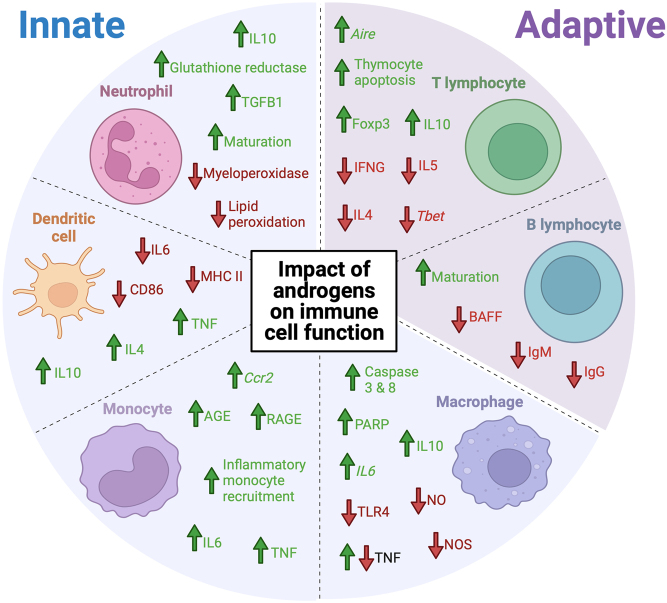Figure 3.
The impact of androgens on immune cell function in health and disease. In general, androgens tend to exhibit an anti-inflammatory effect on immune cells. This is demonstrated by the upregulation of inflammatory mediators, such as IL-10, in various immune cell types including T lymphocytes (Fijak et al. 2015), macrophages (D’Agostino et al. 1999), dendritic cells (Thompson et al. 2017) and neutrophils (Scalerandi et al. 2018) in the presence of androgens. It has also been demonstrated that androgens can reduce production of several inflammatory mediators, such as IFNG, IL-4 and IL-5 in T lymphocytes (Araneo et al. 1991) and NO in macrophages (D’Agostino et al. 1999, Friedl et al. 2000). Androgen have also been found to promote immune cell maturation and differentiation in cells such as T lymphocytes (Olsen et al. 1991), B lymphocytes (Altuwaijri et al. 2009) and neutrophils (Chuang et al. 2009, Inamdar & Jayamma 2012). Green arrows represent upregulation or increase. Red arrows represent downregulation or decrease. For abbreviations see text. Created with BioRender.com.

 This work is licensed under a
This work is licensed under a 